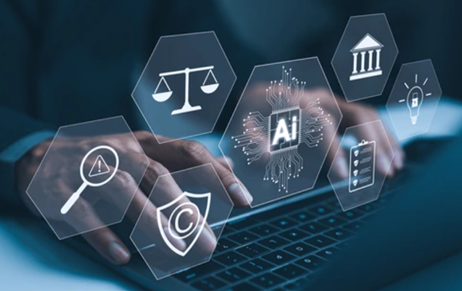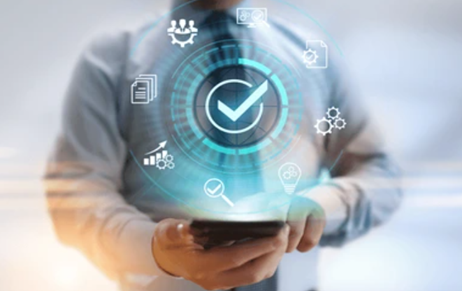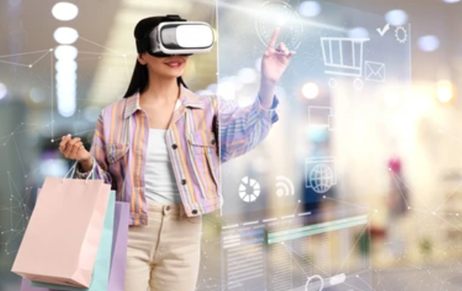Artificial intelligence has a wide range of effects, including on intellectual property law. At best…
Is Arbitration Compatible With Ai?
Article
Arbitration which emerged as an alternative for the long-lasting court proceedings and the overburdened courts has gained such momentum in these past years that it has become a modus operandi for the courts in many countries around the globe. Arbitration if a formal definition is to be taken is a process where the opposing parties chose an Arbitrator who listens and examines the evidences put forth by both parties and gives a decision. The website of the American Bar Association goes further to segregate it from mediation by bringing up the point that the neutral arbitrator that both parties have appointed has the power to make a decision in the case of Arbitration. They further went to compare it with the process of trial in the court but with the freedom to provide the evidences in any manner feasible and in many cases, there is no requirement to apply a law.[1] It is a private and consensual method of dispute resolution, resulting into a binding decision: instead of state courts, it is a private tribunal appointed by agreement of the parties which renders a binding decision—the arbitral award. This is not something that is new for the people as they were used to using similar methods for dispute resolution from the ancient times. It will not be wrong to state that Arbitration was the sole way to resolve disputes in the times when traditional courts didn’t exist. Though it still continued to be practiced in informal manner, it was made formal with established procedures by the Legislature and the Judiciary in the recent times. This led to the revolution where the courts started referring the cases for arbitration and even the preference for it started rising among the people. The credit behind this rise can be given to the authority, that this alternative method gained by its codification. Even though it was not new, it was a revolution for the overburdened courts and the parties who were getting old waiting for the judgment in their respective cases.
The process of arbitration is a speedy process for dispute resolution and to speed it up more the inculcation of the newly emerging Artificial Intelligence in its arena is being done. It is not only in this upfront but the use of AI has gained a speculative importance in the lives of the human, from sorting mails to filtering choices according to their taste. It is expected for it to have entered into the arena of legal proceedings and arbitration though it is still in its primitive stage. We will discuss this relation of AI and Arbitration further. But before that let us shed some light on Artificial Intelligence.
The term ‘Artificial Intelligence’ was coined by John McCarthy, in 1956, who defined it as “the science and engineering of making intelligent machines, especially intelligent computer programs. It is related to the similar task of using computers to understand human intelligence.” He added, however, that AI does not have to confine itself to methods that are “biologically observable.”[2] The AI in practical language or in layman’s terms can be understood as a machine that takes lots of data and then analyses those data and when asked to do something related to that data, then draws inferences from the analyzed data and produces a result. It can be compared to a human brain which has a similar function to take the data that it is getting from its interactions and then use that data to build or answer new ideas or questions. The working of AI can be better understood by the definition of Kathleen Paisley and Edna Sussman. They in their article explain it to be combining a huge amount of data with data processing systems and algorithms which lets the system learn on its own from the data and formulate new ideas. They have further gone to express that this term is used loosely and includes everything from machine learning to data interpretation to bot learning. But the basic thing that makes AI unique is its ability to learn.[3]
The world has always been very sceptical in regard to the inclusion of Artificial Intelligence in their field of work. The further enhancement and development of Artificial intelligence and the doors of possibilities it is opening is engraving fear in the hearts of people who are afraid of losing their jobs. This is similar to the time when machines came for the first time. This fear of losing jobs is more engraved in the minds of people in the legal profession who are showing unwillingness towards the further enhancement of usage of Artificial Intelligence in their arena. This has led to the slow development of Artificial Intelligence in the Legal field. But we cannot attribute the slow implementation only on the people’s unwillingness, the Artificial Intelligence being in its primitive stage can also be attributed to be the cause behind this. Even when it is in a primitive stage as Lord Neuberger, former President of the UK Supreme Court, observed, “AI has the potential to revolutionize the way that lawyers work… and it will be able to do much of the work of document analysis and legal research currently done by lawyers.”[4]
This potential of Artificial Intelligence offers can be observed in the field of Arbitration where it is seen to be a promising magical revolution. As I stated in the earlier parts of the article, Artificial Intelligence is a speedy process of dispute resolution, and as Bento points out that the thing that is common between both Artificial Intelligence and Arbitration is that both of them are way ahead of the status quo. The prevalence of Arbitration freed the people from the taxing Judiciary and Artificial Intelligence gives freedom from cognitive limitations. The inclusion of Artificial Intelligence in Arbitration has become a hot topic of debate and discussion. There are several views, where some people are against and some with this inclusion. But the number of people protesting against the inclusion of Artificial Intelligence is dwindling especially after the Covid 19 era which totally transformed the working of the Arbitration system. The arbitration which used to happen in the confinements of Arbitration Chambers shifted to digital arbitration where both the parties and the Arbitrator participated from the comfort of their homes. The major change that paved the foundation for a strong building where Artificial Intelligence can live with Arbitration is the presentation of cases in front of arbitrators in digital formats and even the judgments were passed in the digital format. This process continued even after COVID-19 ended. This led to the creation of a huge database which is fundamental for the working of Artificial Intelligence. For example, Dispute Resolution Data is a U.S. start-up that provides a global database pertaining to international commercial arbitration and mediation.[5] The information covers industry type, claim amount, location, cost, duration, and outcomes i.e., whether the case is settled, withdrawn, or a final award is issued, etc.[6] The data is collated from a number of renowned arbitral institutions such as the International Chamber of Commerce (“ICC”), the International Centre for Dispute Resolution (“ICDR”), and the Centre for Effective Dispute Resolution (“CEDR”).[7] Another example is Arbitrator Intelligence, a non-profit initiative that aims to increase access to information about arbitrators and their decision-making through post-award questionnaires sent to participants.[8] This is the pool of data that is being created by transcribing the hearings and putting down the judgment in digital format. The Artificial Intelligence tools are used by the Arbitration Centres to choose the Arbitrators for the parties randomly and even the parties prefer this over the selection by the humans which is in the purview of the question of being biased. This saves lots of time for the Arbitration centre and even prevents disputes over arbitrators. All this progress is still in its primitive stage but it still is quite handy.
The real magic comes presents itself when we look forward to the future that it can build. The major talk is all about Artificial Intelligence being the arbitrator and, its ability, to make decisions. But this is an aspiration that is way ahead up the road as neither the technology is sufficient nor there is that huge database that can furnish it. So, the implementation can begin with the simple task of easing up the small burdens in the arbitration process which despite being the fastest goes at a slow pace. The first task that Artificial intelligence can be given is of a researcher. It can assist the lawyers or the counsel of the parties to interpret the simple language used by the parties and draw its relevance with that of the legal provisions. To simplify it, Artificial Intelligence can be applied to bring out the provisions of the law related to the case by understanding the party’s problem and then building the semblance with legal provisions. This is done by Natural Language processing software which has the capability to analyze the natural human language. This will highly reduce the time that the Counsels take to file their side in front of the arbitrators. This will also reduce the expenditure of the parties on the lawyers, who charge by hours just to find arbitration clauses or provisions.[9]

There is a huge language barrier that comes in the way of smooth and speedy arbitration, especially International Arbitration. There are parties from all around the world with documents in different languages, even they speak differently. Artificial Intelligence here can bridge the gap that is being created due to language. The Natural Language Processing tool can be used to translate the documents and the words spoken into a language that can be understood by the Arbitrator and the other party. However, these tools are not at that stage of perfection where they can understand the words that change meaning when spoken in different tones. But further development in this can be of huge assistance and save lots of time and money.
At this stage, Artificial Intelligence can also assist the arbitrators who spend hours analyzing the data provided by the parties to find the relevant information like the information regarding parties, procedural history, facts, and details about the arbitration clause that is to be used while awarding the award. Further, Artificial Intelligence can serve as an assistant too, to draw out relevant facts or relevant contentions that can ease the Arbitrator’s work. Artificial intelligence can also help the Arbitrators to write down the awards and case management could be automated, or significantly streamlined with the aid of software, giving arbitrators more time to do what they do best: arbitrate. Synopses of longer awards (particularly of investor-state arbitrations) could be automatically generated to help readers navigate through decisions. Tribunal secretaries could be replaced by AI decision support systems. These all are some ways or instances where Artificial Intelligence can take a step ahead in the field of Arbitration before it reaches the part where it becomes an Arbitrator.
Now let’s discuss the scope of Artificial Intelligence being the Arbitrator. This is a future everyone looks forward to and criticizes too. If we analyze the articles or journals or the discussions on this from the past two years, this is a huge topic of discussion among the people who have an interest in the field of arbitration. The talk on this is still on the rise as the Arbitration is becoming time-consuming and hard on pockets. On analyzing the Social, legal, and philosophical consequences of conceivable scenarios involving the employment of AI in arbitration, as we may not be far from such a prospect. After all, Kira Systems[10] which specializes in analyzing, extracting and identifying Contracts and Documents was founded in 2011, but the recent boom has resulted in numerous London enterprises employing this software only in the last three years. Furthermore, for the first time in mediation history, a robot mediator was utilized in Canada.[11] The online program, which replaced a human mediator with algorithms, resolved a three-month-long argument in less than an hour. It is evident from this that autonomous AI systems will occupy an important place in arbitration in the near future. This is more evident from the fact that talks are going on replacing tribunal secretaries with Artificial Intelligence to assist with the legal research and summarising legal submissions or evidences.
There are huge benefits ranging from impartial decisions to saving time and money that can be reaped by appointing AI as an arbitrator. The first benefit will be of it being an Unbiased Arbitrator as it runs on algorithms and is fully based on facts and rules. There is no play of emotions as contrary is in the case of Human. This will help in instilling confidence in parties and will fully satisfy the parties.
The AI as an arbitrator will be giving decisions on the basis of the data it has analyzed after combining it with algorithm. These decisions will be similar for the same type of cases. There won’t be variations in the decisions as in the case of Human beings who by virtue of his emotions and mental state tends to create variations in his decisions.
The AI, has the capability to process the data quickly and efficiently which will lead to faster decisions and will help in saving time of parties and arbitration. And if we analyze this further, this will also help in saving money. It will pocket friendly for the parties and even for the Arbitration centres.
It can be observed from the above that AI is serving huge benefits while being an Arbitrator but as I expressed earlier, there is lots of critic or problems that definitely needs consideration. The intrinsic lack of empathy and contextual awareness in AI systems is a key criticism. The AI’s nature of being an emotional fool is both beneficial and even problematic. Human arbitrators are emotionally intelligent, which enables them to take into account the subtle emotional distinctions and complicated cultural issues that frequently come up in legal conflicts. AI’s failure to fully understand human emotions may result in decisions that come across as cold and callous, thereby escalating confrontations and leaving parties unhappy.
The criticizers also put an opinion that AI-based arbitration is also plagued by difficulties with accountability and transparency. Because AI algorithms function as “black boxes,” it is difficult to understand and evaluate the decision-making process. A lack of trust and doubts about the system’s fairness may result from the parties to a disagreement being unable to understand how the AI came to its conclusion. Furthermore, as the algorithms draw their learning from historical data that may contain inherent biases found in human judgments, opponents point out the possibility of biases in AI’s decision-making. AI arbitrators may unintentionally propagate prejudice and inequality without rigorous curation and bias reduction techniques, hindering the goal of justice.
These are the problem that AI serves while being an arbitrator.
Now the final question after analyzing all this about the AI and Arbitration that we arrive to is whether AI can be or should be an Arbitrator or not. The best way forward towards answering this question will be analyzing legal provisions of the countries as the arbitration runs only when laws and courts allows it to. There is an unbreakable relationship between them. Now, if we look at the legislations of the different countries there is not a single provision in the laws of the maximum countries which mandates that a human should be an Arbitrator. This definitely gives the decision of the appointing AI as an arbitrator. And for the countries which have laws against this, they will definitely show an eagerness once they realize the benefits that this reaps.
CONCLUSION
The Artificial Intelligence as seen has huge implication in the life of the human being and it can be seen as a movement towards a new era where people have envisioned that machines will be working for them. And throughout this article we have seen the ways through which AI is making a change in the field of arbitration, whether it be in the form of being an assistant or whether being in the role of the Arbitrator. There are both, advantages and disadvantages of it as we saw through the article. It is helping out the parties and arbitrators by analyzing the data and pointing out the accurate information quickly and efficiently. It is even serving as the right hand of the arbitrator and providing with an outlook for the case present on the table, helping him to see the different facets of the solution. While being an arbitrator, it is opening doors for fast and unbiased disposable of the case which is saving the money of the parties and the centre. But as it requires a huge amount of data for efficient working and it not being present is presenting a serious problem and also the part where people are blank about the ways through it is reaching its decisions questions the faith of human on it.
After analyzing this as it has been suggested by many scholars, we can begin by appointing it as a fellow arbitrator with the human arbitrator which will solve the problem of its credibility being questioned. The human arbitrator will take its suggestions and analysis and then using his own mind can give the award. This will also solve the major problem of the lack of the data as the AI will be daily witnessing multitudes of cases, it will build its own database and train by it. The different arbitration centres can also contribute by creating a database by leaving the personal information of the parties.
The technology is a boon for the society and we are developing it more and more to aid ourselves and abandoning is not a virtue of human being. We should adopt it steadily and work towards removing the flaws and solving the issues it has. Every coin has two sides, it’s just which side we are concentrating upon.
Author: Satyam Raj, a student at Chanakya National Law University, Patna, in case of any queries please contact/write back to us via email to chhavi@khuranaandkhurana.com or at IIPRD.
[1] Arbitration. Available at: https://www.americanbar.org/groups/dispute_resolution/resources/disputeresolutionprocesses/arbitration/ (Accessed: 10 January 2024).
[2] McCarthy J, ‘Interview with John McCarthy, Compt. Scientist, Stan. Univ’ (What is ai? / basic questions, 1 January 1970) <http://jmc.stanford.edu/artificial-intelligence/what-is-ai/index.html> accessed 11 January 2024
[3] K. P and E. S (ARTIFI CIAL intelligence challenges and opportunities for international …, 2018) <https://sussmanadr.com/wp-content/uploads/2018/12/artificial-intelligence-in-arbitration-NYSBA-spring-2018-Sussman.pdf> accessed 11 January 2024 .
[4] Sheikh T, ‘How Ai Will Transform International Arbitration and Much Sooner than You Think’ (LinkedIn, 5 May 2023) <https://www.linkedin.com/pulse/how-ai-transform-international-arbitration-much-sooner-tariq-sheikh> accessed 11 January 2024
[5] DISPUTE RESOLUTION DATA, About DRD, (last visited July 30, 2023).
[6] ‘Questions & Answers’ (Dispute Resolution Data) <http://www.disputeresolutiondata.com/questions_answers> accessed 12 January 2024
[7] ‘The Future of Arbitration in the World of Big Data’ (Future of arbitration in world of Data | Global law firm | Norton Rose Fulbright) <https://www.nortonrosefulbright.com/en/knowledge/publications/c93235b5/the-future-of-arbitration-in-the-world-of-big-data> accessed 12 January 2024.
[8] M. W (2022-2023 guide to the curriculum at the Ohio State University Moritz …) <https://moritzlaw.osu.edu/sites/default/files/2022-05/2022-2023%20Moritz%20Guide%20to%20the%20LL.M.%20Curriculum.pdf> accessed 12 January 2024
[9]SenGupta R, ‘Law Firms Start to Take the Long View’ (Financial Times, 15 October 2021) <https://www.ft.com/content/a602a51e-3f2e-48f4-90db-25d36928c69c> accessed 13 January 2024.
[10] ‘Kira Systems – Crunchbase Company Profile & Funding’ (Crunchbase) <https://www.crunchbase.com/organization/kira> accessed 13 January 2024.
[11] Hilborne N, ‘Robot Mediator Settles First Ever Court Case’ (Legal Futures, 19 February 2019) <https://www.legalfutures.co.uk/latest-news/robot-mediator-settles-first-ever-court-case> accessed 13 January 2024.



